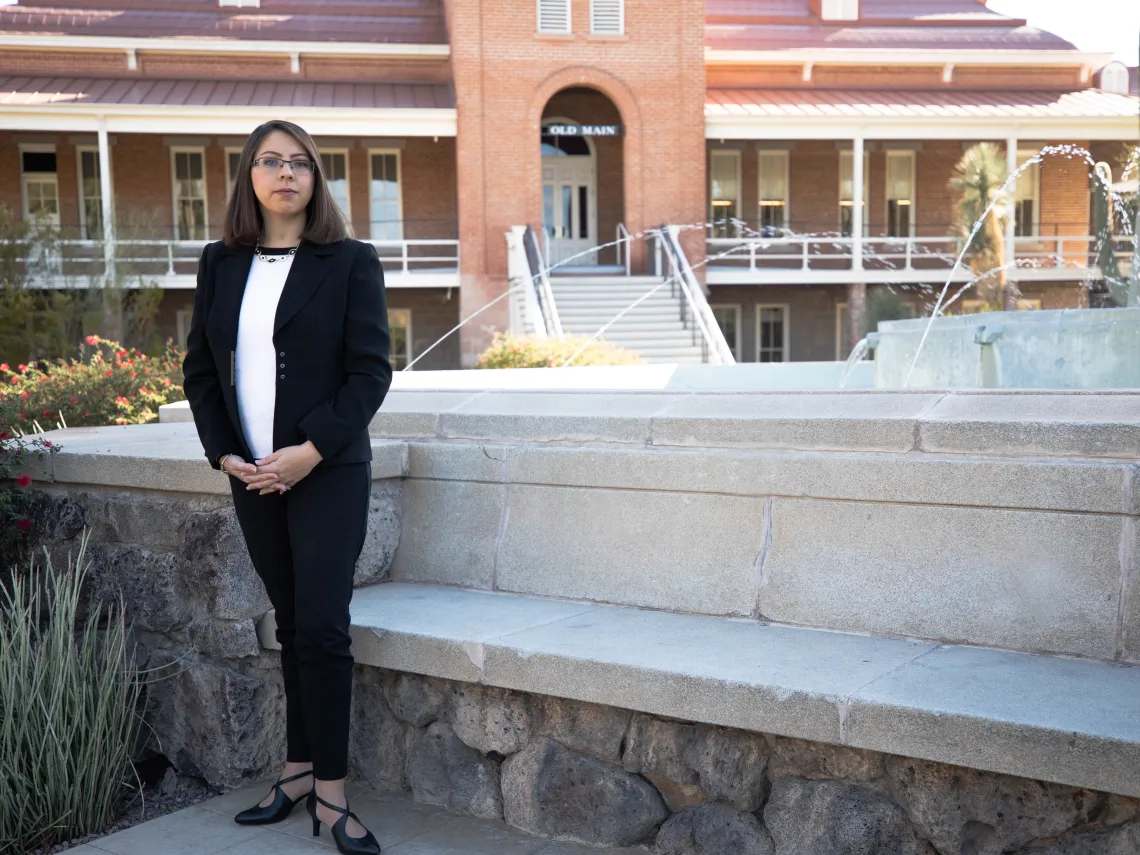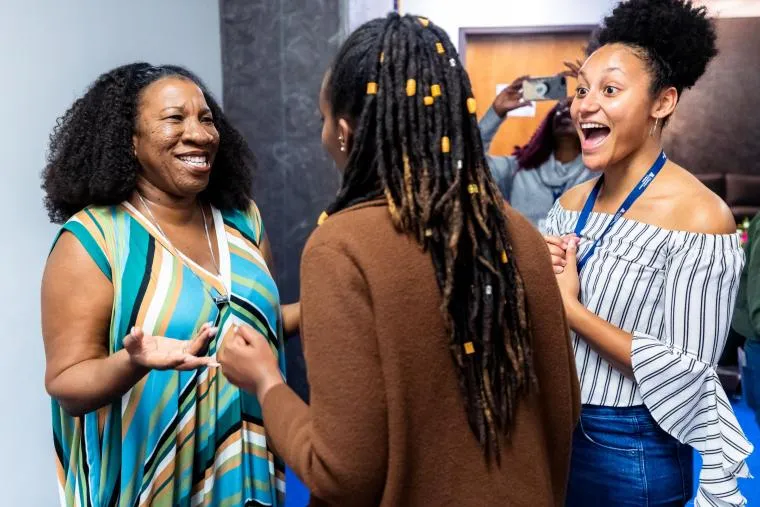Fighting Gender-Based Violence
Gender-based violence – against students and in the community – is still rampant. A major gift is helping the University of Arizona find innovative solutions.

GBV Consortium Director Elise Lopez is studying the effectiveness of a campus sexual assault prevention program and of the “Safer Bars” program.
A $1.5 million gift from the Chris and Carrie Shumway Foundation supports the University of Arizona’s Consortium on Gender-Based Violence, a research and resource center that seeks to model and inspire a radical shift in the way people think about and address gender-based violence.
By identifying and disseminating best practices, the consortium aims to be a national model for understanding and combating gender-based violence, improving support for survivors, and eliminating cultural attitudes that re-create cycles of violence.
The Shumways were early advocates for and cornerstone investors in the consortium, making their first gift to form the center in December 2017. Their groundbreaking gift funds campus-wide gender-based violence initiatives, allowing the consortium to further its work under the vision of public health expert Elise Lopez.
Housed in the College of Social and Behavioral Sciences, with Student Affairs and Enrollment Management as a key partner, the consortium is a university “hub” for research and services related to gender-based violence.
The consortium helped launch the new Survivor Advocacy Program offered by the Dean of Students Office, provides a grant program to incubate innovative solutions, and offers a variety of engagement opportunities.
Carrie Shumway (B.A., Sociology, ‘93) dedicated years of service as a board member of the Joyful Heart Foundation, which provides services for victims of sexual assault. Her husband, Chris Shumway, is the managing partner of Shumway Capital, a private investment firm.
“Our Foundation believes in the importance of eradicating gender-based violence and is pleased to support this transformative initiative at the University of Arizona,” said Carrie Shumway. “We are looking forward to the university creating a model that can be replicated on college campuses nationwide.”
Monica J. Casper, former professor and associate dean for faculty affairs and inclusion in the College of SBS, and Melissa Vito, former senior vice president for student affairs, enrollment management, and strategic initiatives for UArizona, co-founded the consortium.
“We are deeply grateful to Carrie and Chris for immediately grasping our vision and committing to fund this important venture,” Casper said.
Creating a Research-to-Practice Model
Elise Lopez, the director of the consortium, is an internationally recognized violence scholar, and her work has received national awards. She previously served as the assistant director of the Relationship Violence Program in the Mel and Enid Zuckerman College of Public Health.
“We have an unprecedented opportunity to spark innovation and establish a comprehensive research-to-practice model at the University of Arizona for preventing and responding to violence,” Lopez said.
Along with Mary Koss, professor in the College of Public Health, Lopez is studying the effectiveness of a unique campus sexual assault prevention program for female first-year students. The study is funded by a $2 million grant from Arnold Ventures.
Lopez also stresses the importance of campus-community collaboration. Her recent work includes overseeing a national initiative, called “Safer Bars,” to train liquor servers to recognize and safely respond to sexual aggression. And with a $3 million NIH grant, Lopez, Koss, and colleagues are evaluating the effectiveness of this program.
Sharing Expertise with the Community
The consortium’s speaker series allows the university and Tucson community to engage with renowned scholars, activists, and artists whose work focuses on understanding and eradicating gender-based violence.

Last fall, the consortium hosted ‘me too.’ Movement founder Tarana Burke on campus. Burke spoke about the need to recognize sexual violence as a social justice issue and to center Black women’s voices in the fight to end all forms of gender-based harm.
The consortium hosted author and activist Lacy M. Johnson for a reading and Q&A. The consortium also co-hosted a film screening and conversation of The Mask You Live In, in partnership with community groups. The documentary follows boys and young men as they struggle to negotiate America’s narrow definition of masculinity.
This past spring, the consortium also hosted an online self-care workshop for survivors in collaboration with the Survivor Advocacy Program.
Incubating Innovative Solutions
The Innovation Fund incubates transformational projects that support victims and survivors and challenge attitudes that recreate cycles of violence. The initiative has funded projects that:
• harness traditional knowledge to tackle violence against Indigenous women
• provide financial and legal training to domestic abuse survivors
• adapt the best community models for accountability practices to UArizona
• expand sexuality education to first-year students who are involved in Greek organizations
• enhance a bystander intervention program
The consortium is also working with its local partners and advisory board to adapt GBV prevention to the evolving landscape of campus life. Plans for 2021 include investment in online prevention and awareness campaigns, offering remote opportunities for student interns, working with survivor advocates to expand services, and identifying opportunities to integrate GBV awareness into other student health and safety programs on campus.
“Sexual, dating, and domestic violence have not gone away during the COVID-19 crisis,” Lopez said. “There is evidence that these forms of violence may actually be increasing. It is imperative that GBV awareness be included in innovative solutions for keeping our students safe and healthy.”
##
This article was part of the 2020 SBS Developments magazine.

